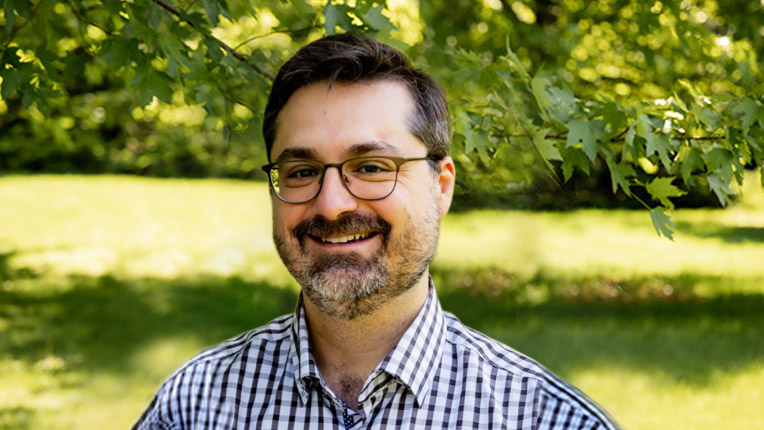ACM Honors Those Who Shape Technology’s Future
Global Computing Society Recognizes Scientists Whose Work Has Impacted Autonomous Agents, Cryptography, and Software for Parallel Computers
ACM named the recipients of three prestigious technical awards. This year’s awardees are recognized for groundbreaking innovations to autonomous systems, cryptography, and software for parallel computers.
The 2024 Award Recipients include:
- Grace Murray Hopper Award
- ACM - AAAI Allen Newell Award
- Software System Award
- Paris Kanellakis Theory and Practice Award
Ilias Diakonikolas, a Professor at the University of Wisconsin, Madison, is the recipient of the 2024 ACM Grace Murray Hopper Award. He is cited for making contributions to the field of algorithmic robust statistics by introducing new techniques to robustly estimate high-dimensional distributions along with a surprising variety of algorithmic applications.
The primary focus of Diakonikolas' work is the mathematical foundations of data analysis, machine learning and algorithmic statistics. He is most well-known for his work on robust statistical algorithms for high-dimensional data. “Robust algorithms” are algorithms that perform well even when the data significantly deviates. The new paradigms that Diakonikolas developed changed the way we think about what is possible for efficient algorithms that process high-dimensional data—overcoming problems that have stymied researchers since the 1960s.
The ACM Grace Murray Hopper Award is given to the outstanding young computer professional of the year, selected on the basis of a single recent major technical or service contribution. This award is accompanied by a prize of $35,000. The candidate must have been 35 years of age or less at the time the qualifying contribution was made. Financial support for this award is provided by Microsoft.
Peter Stone, Professor, University of Texas at Austin and Chief Scientist, Sony AI, receives the ACM - AAAI Allen Newell Award for significant contributions to the theory and practice of artificial intelligence (AI), especially in reinforcement learning, multiagent systems, transfer learning, and intelligent robotics.
As a leading figure in AI research, Stone has fundamentally advanced how autonomous agents learn, plan, and collaborate. His groundbreaking work on reinforcement learning algorithms has enabled robots to acquire skills through experience. At the same time, his innovations in multiagent coordination have transformed how teams of agents operate collectively toward shared goals.
The ACM - AAAI Allen Newell Award is presented to an individual selected for career contributions that have breadth within computer science, or that bridge computer science and other disciplines. The Newell award is accompanied by a prize of $10,000, provided by ACM and the Association for the Advancement of Artificial Intelligence (AAAI), and by individual contributions.
William Gropp, University of Illinois; Pavan Balaji, Meta; Rajeev Thakur, Yanfei Guo, Kenneth Raffenetti, and Hui Zhou (all of Argonne National Laboratory), receive the ACM Software System Award for MPICH , which has powered 30 years of progress in computational science and engineering by providing scalable, robust, and portable communication software for parallel computers.
The development of the MPICH software system began in 1992 as proof-of-concept for the emerging Message Passing Interface (MPI) standard. The project not only demonstrated the feasibility of MPI but also played a pivotal role in shaping the standard itself—guiding it toward a design that was both straightforward to use and practical to implement. The name "MPICH" reflects a combination of "MPI" with "Chameleon," a predecessor system on which the original implementation was based.
By making MPI broadly accessible and effective in practice, MPICH established MPI as a universal standard for parallel computing. It enabled researchers and developers to write portable parallel programs that could seamlessly move across teams, institutions, and platforms—unlocking unprecedented collaboration and accelerating progress in science and engineering worldwide.
The ACM Software System Award is presented to an institution or individual(s) recognized for developing a software system that has had a lasting influence, reflected in contributions to concepts, in commercial acceptance, or both. The Software System Award carries a prize of $35,000. Financial support for the Software System Award is provided by IBM.
Paris Kanellakis Theory and Practice Award
Hugo Krawczyk, Senior Principal Scientist, Amazon, receives the ACM Paris Kanellakis Theory and Practice Award for pioneering and lasting contributions to the theoretical foundations of cryptographically secure communications, and to the protocols that form the security foundations of the Internet.
Krawczyk’s most high-profile contribution is his work on the SIGMA authenticated key-exchange protocol. SIGMA has become a cornerstone of the most widely used communication protocols on the Internet. It is now implemented in billions of devices and web browsers, making it a fundamental component of online security. This widespread adoption underscores the importance and impact of Krawczyk’s work in the field of cryptography
The ACM Paris Kanellakis Theory and Practice Award honors specific theoretical accomplishments that have had a significant and demonstrable effect on the practice of computing. This award is accompanied by a prize of $10,000 and is endowed by contributions from the Kanellakis family, with additional financial support provided by ACM’s Special Interest Groups on Algorithms and Computation Theory (SIGACT), Design Automation (SIGDA), Management of Data (SIGMOD), and Programming Languages (SIGPLAN), the ACM SIG Projects Fund, and individual contributions.
Media Coverage
“ACM Celebrates Innovators Shaping the Future of Technology"
Bioengineer, May 2, 2025
“NCSA Director Bill Gropp Honored with Prestigious ACM Award"
University of Illinois Urbana-Champaign Siebel School of Computing and Data Science, May 1, 2025
Ilias Diakonikolas Receives ACM Grace Murray Hopper Award
Ilias Diakonikolas, a Professor at the University of Wisconsin, Madison, is the recipient of the 2024 ACM Grace Murray Hopper Award. He is cited for making contributions to the field of algorithmic robust statistics by introducing new techniques to robustly estimate high-dimensional distributions along with a surprising variety of algorithmic applications. The new paradigms that Diakonikolas developed changed the way we think about what is possible for efficient algorithms that process high-dimensional data.

ACM, AAAI Recognize Peter Stone for Significant Contributions to AI
Peter Stone, Professor, University of Texas at Austin and Chief Scientist, Sony AI, receives the ACM - AAAI Allen Newell Award for significant contributions to the theory and practice of artificial intelligence (AI), especially in reinforcement learning, multiagent systems, transfer learning, and intelligent robotics. As a leading figure in AI research, Stone has fundamentally advanced how autonomous agents learn, plan, and collaborate. His groundbreaking work on reinforcement learning algorithms has enabled robots to acquire skills through experience.

Software System Award Goes to Developers of MPICH
William Gropp, University of Illinois; Pavan Balaji, Meta; Rajeev Thakur, Yanfei Guo, Kenneth Raffenetti, and Hui Zhou (all of Argonne National Laboratory), receive the ACM Software System Award for MPICH , which has powered 30 years of progress in computational science and engineering by providing scalable, robust, and portable communication software for parallel computers. The development of the MPICH software system began in 1992 as proof-of-concept for the emerging Message Passing Interface (MPI) standard.

Hugo Krawczyk Receives Kanellakis Award
Hugo Krawczyk, Senior Principal Scientist, Amazon, receives the ACM Paris Kanellakis Theory and Practice Award for pioneering and lasting contributions to the theoretical foundations of cryptographically secure communications, and to the protocols that form the security foundations of the Internet. Krawczyk’s most high-profile contribution is his work on the SIGMA authenticated key-exchange protocol. SIGMA has become a cornerstone of the most widely used communication protocols on the Internet. It is now implemented in billions of devices and web browsers, making it a fundamental component of online security.
